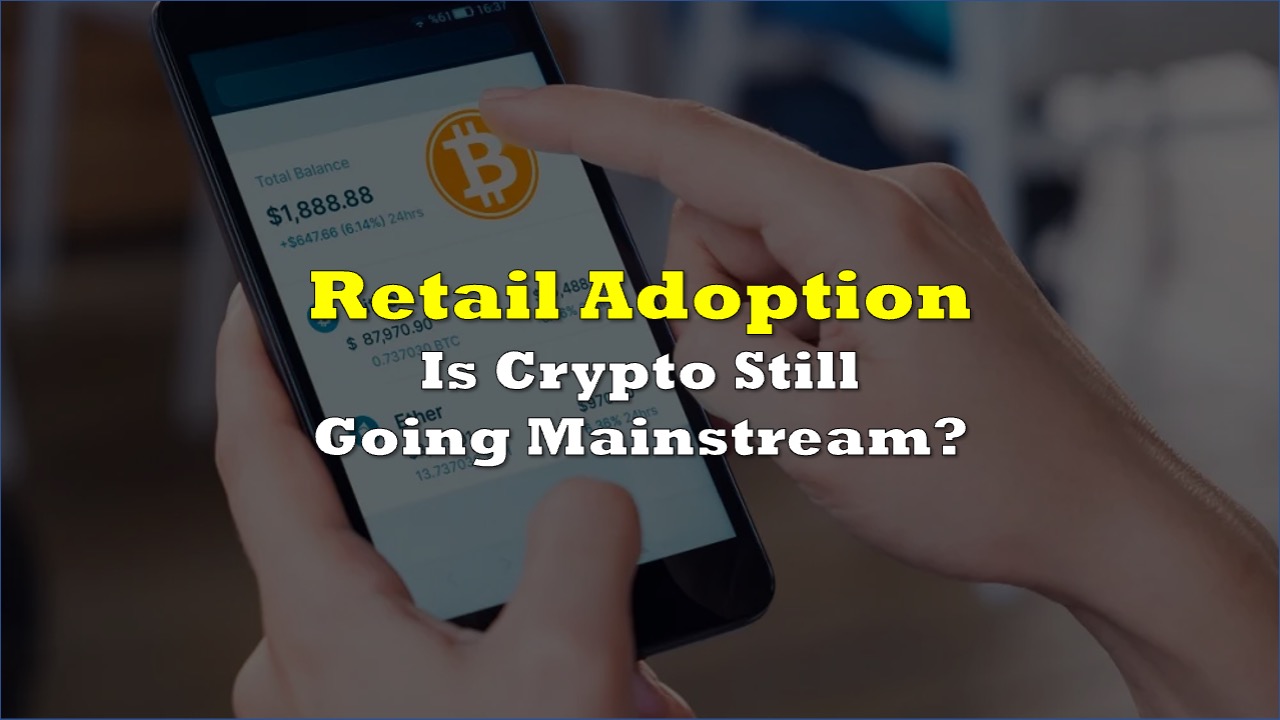In July last year, a Deloitte poll found that nearly 75% of retailers had plans to accept cryptocurrency or stablecoin payments in the next two years. But following a series of high-profile implosions, and the resulting heightened regulatory scrutiny and heavy political involvement, things have changed.
“Merchants getting ready for crypto” surveyed 2,000 senior executives across the retail industry, representing lifestyle segments including food and beverage, fashion, cosmetics, as well as electronics and transportation, and found that 85% of them believed that payments in digital currencies would be ubiquitous in the next five years. The same percentage also expected that their suppliers to accept digital currencies.
The survey found that retailers were largely planning to accept digital currencies as payment, and that a majority of them saw that their customers were increasingly getting interested in digital currency, and that offering it as a payment option would give them a competitive advantage. It also noted that there was “also a sense, however, that longer-term strategic value is driving current adoption of digital currencies, and not shorter-term cost savings.”
Interestingly, 87% of them also agreed that digital currencies could be accepted as legal tender in the next decade.
But retailers understood the risk and volatility of holding digital currencies, and thus over 50% of the respondents said that to enable this type of payment, they plan to have third-party payment processors convert digital currency into fiat. This shows that the motivation for adoption wasn’t really driven by faith in the technology per se, but it was more of increasing consumer accessibility to drive purchases and to grow their customer base.
Present-Day Reality
Awareness for crypto has grown significantly over the last few months, thanks to the spectacular fall from grace of one of its icons, FTX founder Sam Bankman-Fried. But this is to say that where awareness has grown, consumer interest has dwindled.
A recent consumer report by Security.org found that in 2021, 47% of Americans considered themselves familiar with crypto, by 2023 that number jumped to 69%. But crypto ownership has fallen to 30% in 2023, versus 33% in 2022 and 15% in 2021.

More interestingly, only a small percentage of these crypto holders intended to use their holdings to make purchases. Only 13% said that their main reason for owning crypto is to facilitate online purchases, 11% said it was to make their purchases more private, versus the 56% who have it to diversify their portfolio (and the 14% who got it because they think it’s cool).

Visa and Mastercard, who were helping push adoption before the carnage of 2022, recently announced that they would take a step back from the space, citing the continued market uncertainty.
Visa said in a statement that “recent high-profile failures in the crypto sector are an important reminder that we have a long way to go before crypto becomes a part of mainstream payments and financial services.”
Mastercard, meanwhile, indicated that it was a pause and not a full stop, saying “our efforts continue to focus on the underlying blockchain technology and how that can be applied to help address current pain points and build more efficient systems.”
Retailers that Currently Accept Crypto
Adoption hasn’t stopped entirely. While it’s unlikely that crypto will become legal tender any time soon, a number of US retailers accept crypto payments.
Retail stores like Barnes & Noble, GameStop, Lowe’s, Office Depot, Petco and Ulta Beauty, fast food chains and restaurants like Baskin Robbins, Caribou Coffee, Chipotle, Jamba Juice, Grocery Stores, and Whole Foods Market all accept crypto payments via third-party app.
AMC and Starbucks (and Tesla for some items on its online store and only with Dogecoin) were the last major retailers to start accepting some crypto directly and this was in 2021.
Information for this briefing was found via CNBC, Deloitte, Security.org, and the sources and companies mentioned. The author has no securities or affiliations related to the organizations discussed. Not a recommendation to buy or sell. Always do additional research and consult a professional before purchasing a security. The author holds no licenses.









